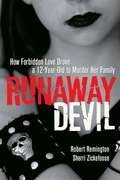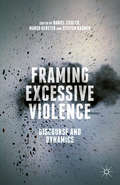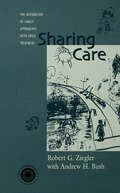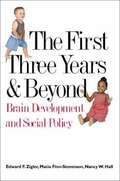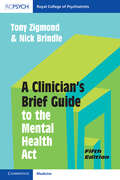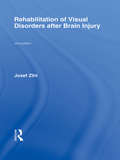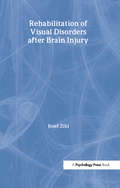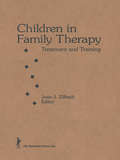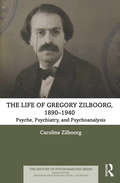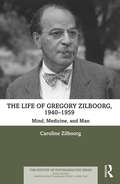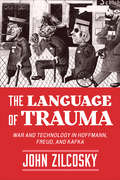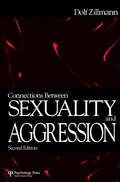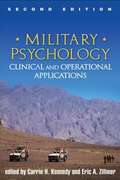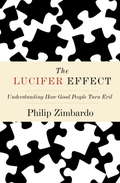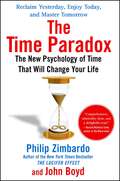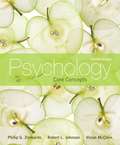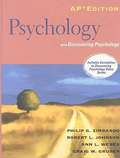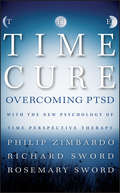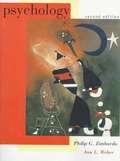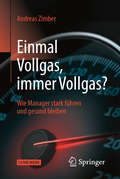- Table View
- List View
Runaway Devil: How Forbidden Love Drove a 12-Year-Old to Murder Her Family
by Sherri Zickefoose Robert RemingtonMarc and Debra seemed to have it all -- a lovely home in the prairie town of Medicine Hat, fulfilling careers, a supportive marriage, and two beautiful children: eight-year-old Jacob and twelve-year-old JR. After years of struggle to reach this point, they finally felt their future held promise. But on April 23, 2006, their bodies were discovered in their basement, covered in savage stab wounds. Upstairs, Jacob lay dead on his bed, his toys spattered with blood. Investigators worried for JR's safety, but unknown to them, the pretty honour roll student had been developing a disturbing alter ego online. Runaway Devil professed a fondness for a darker world of death metal music, the goth subculture, and a love for Jeremy Steinke, a twenty-three-year-old high-school dropout who lived in a rundown trailer park. Soon, shocking evidence in JR's school locker -- printed here for the first time -- led police to believe the girl was a suspect in her family's murders. The case horrified parents everywhere. Journalists Robert Remington and Sherri Zickefoose have been covering it from the beginning, and in Runaway Devil, they reveal what really happened: the unlikely young love, the teenage rebellion, a troubling world of adolescent drifters, and a small community torn apart by an unthinkable crime. A modern cautionary tale, Runaway Devil is also a chilling portrait of an approval-seeking man smitten with a manipulative young girl -- who would stop at nothing to get what she wanted.
Framing Excessive Violence: Discourse and Dynamics
by Daniel Ziegler Marco Gerster Steffen Kr�merThis book explores the dynamics of excessive violence, using a broad range of interdisciplinary case studies. It highlights that excessive violence depends on various contingencies and is not always the outcome of rational decision making. The contributors also analyse the discursive framing of acts of excessive violence.
Sharing Care: The Integration of Family Approaches with Child Treatment
by Robert Ziegler Andrew BushFirst Published in 1999. Routledge is an imprint of Taylor & Francis, an informa company.
Contested Commemorations
by Benjamin ZiemannThis innovative study of remembrance in Weimar Germany analyses how experiences and memories of the Great War were transformed along political lines after 1918. Examining the symbolism, language and performative power of public commemoration, Benjamin Ziemann reveals how individual recollections fed into the public narrative of the experience of war. Challenging conventional wisdom that nationalist narratives dominated commemoration, this book demonstrates that Social Democrat war veterans participated in the commemoration of the war at all levels: supporting the 'no more war' movement, mourning the fallen at war memorials and demanding a politics of international solidarity. It describes how the moderate Socialist Left related the legitimacy of the Republic to their experiences in the Imperial army and acknowledged the military defeat of 1918 as a moment of liberation. This is the first comprehensive analysis of war remembrances in post-war Germany and a radical reassessment of the democratic potential of the Weimar Republic.
The First Three Years and Beyond: Brain Development and Social Policy
by Edward F. Zigler Matia Finn-Stevenson Nancy W. HallDrawing on the latest research from the social sciences and studies on the brain to answer questions and exploring what they mean for social policy and child and family development, this book offers recommendations for child care and development based on current brain research and its implications. A must-read for parents and policy makers alike.
A Clinician's Brief Guide to the Mental Health Act (A Clinician's Brief Guide)
by Tony Zigmond Nick BrindleA 'how to' book guiding clinicians through the mental health legislation that they need to understand and use in their daily practice, covering the Mental Health Act 1983 and subsequent amendments. This revised and updated edition incorporates new acts, such as the Policing and Crime Act 2017 and Mental Capacity (Amendment) Act 2019. It also covers the findings and implications from Professor Sir Simon Wessely's 2018 review of the Mental Health Act in a new chapter. Written by two leading psychiatrists with many years of experience in using the mental health legislation and in running mental health law courses, this book outlines how changes to statutes and case law have a direct bearing on day-to-day psychiatric practice and why it is important that clinicians of all disciplines have access to and understand the legislation. This is the go-to guide for all clinicians, doctors and nurses working in mental health services.
Rehabilitation of Visual Disorders After Brain Injury: 2nd Edition (Neuropsychological Rehabilitation: A Modular Handbook)
by Josef ZihlThis thoroughly updated and extended edition covers the various cerebral visual disorders acquired after brain injury, as well as the rehabilitation techniques used to treat them. These are described within a brain plasticity framework, using data from single and group case studies along with follow up observation data. This original, tailor-made approach also includes the recording of eye movements for assessing scanning performance in scene perception and reading. The book gives a brief synopsis of the historical background on the subject, alongside an outline of intervention designs and methodological difficulties in the field, and goes on to discuss the mechanisms and processes that provide the foundations for recovery of function and successful adaptation in visually impaired patients. The author concludes by analyzing the importance of the procedures and outcomes of treatments to the reduction of patients’ visual handicaps. The new edition also contains an appendix with recommendations on the case histories, diagnostics and treatments. It is ideal reading for students in clinical neuropsychology, as well as professionals in the fields of neurology, visual neuroscience and rehabilitation experts.
Rehabilitation of Visual Disorders After Brain Injury: 2nd Edition (Neuropsychological Rehabilitation: A Modular Handbook Ser.)
by Josef ZihlDespite a long research tradition in visual neuroscience, the rehabilitation of cerebral visual deficits has, until recently, been neglected. This book is the first to report systematic observations on spontaneous recovery of cerebral visual deficits after acquired brain injury, and the outcome of treating these deficits. The whole range of human visual functions and capacities is covered: visual field, visual acuity and contrast sensitivity, visual adaptation, colour vision, visual space perception, and visual cognition. Additionally, there is a special section devoted to patients with central scotoma. All treatment procedures described are empirically founded.
Children in Family Therapy: Treatment and Training
by Joan J ZilbachHere is one of the few books that focuses explicitly on including children in family therapy sessions. The contributors to this enlightening volume are seasoned family therapists of various theoretical perspectives who work in a variety of settings and include children of all ages in their therapy practices. Recognizing that many practicing therapists are not comfortable including children, they address the treatment and training issues and provide extensive case studies and fascinating background material on their own early involvement in the practice. Children in Family Therapy will be extremely valuable to family therapists of all levels of experience. For the veterans, the cases that are different in approach from their own will be particularly informative. Less experienced therapists will find here a basic introduction and a clear description of the range of clinical practice in family therapy.
Male Sexuality: A Guide to Sexual Fulfillment
by Bernie ZilbergeldA humane, sympathetic, commonsensical book on men, sex and pleasure.
The Life of Gregory Zilboorg, 1890–1940: Psyche, Psychiatry, and Psychoanalysis (The History of Psychoanalysis Series)
by Caroline ZilboorgThe Life of Gregory Zilboorg, 1890–1940: Psyche, Psychiatry, and Psychoanalysis is the first volume of a meticulously researched two-part biography of the Russian-American psychoanalyst Gregory Zilboorg and chronicles the period from his birth as a Jew in Tsarist Russia to his prominence as a New York psychoanalyst on the eve of the Second World War. Educated in Kiev and Saint Petersburg, Zilboorg served as a young physician during the First World War and, after the revolution, as secretary to the minister of labour in Kerensky’s provisional government. Having escaped following Lenin’s takeover, Zilboorg requalified in medicine at Columbia University and underwent analysis with Franz Alexander at the Berlin Psychoanalytic Institute. His American patients ranged from wealthy and artistic figures such as George Gershwin and Lillian Hellman to prison inmates. His writing includes important histories of psychiatry, for which he is still known, as well as examinations of gender, suicide, and the relationship between psychiatry and the law. His socialist politics and late work on Freud’s (mis)understanding of religious belief created a wide circle of friends and acquaintances, from members of the Warburg banking family to the Trappist monk Thomas Merton. Drawing on previously unpublished sources, including family papers and archival material, The Life of Gregory Zilboorg, 1890–1940: Psyche, Psychiatry, and Psychoanalysis offers a dramatic narrative that will appeal to general readers as well as scholars interested in the First World War, the Russian revolution, the Jewish diaspora, and the history of psychoanalysis.
The Life of Gregory Zilboorg, 1940–1959: Mind, Medicine, and Man (The History of Psychoanalysis Series)
by Caroline ZilboorgThe Life of Gregory Zilboorg, 1940–1959: Mind, Medicine, and Man is the second volume of a meticulously researched two-part biography of the Russian-American psychoanalyst Gregory Zilboorg and chronicles the impact of the Second World War on his work and thinking as well as his divorce, remarriage, and conversion to Catholicism. With extensive references to Zilboorg’s writing and politics, this book demonstrates the significance of his contributions to the fields of psychiatry and psychoanalysis in the context of his tumultuous intellectual, personal, and spiritual life. In his late work, he would argue, controversially, that there was no incompatibility between psychoanalysis and religion. Grounded in a wealth of primary source material and impressive research, this book completes the compelling biography of a major figure in psychoanalysis. It will be of interest to general readers as well as scholars across a range of disciplines, particularly the history of psychoanalysis and religion.
The Language of Trauma: War and Technology in Hoffmann, Freud, and Kafka
by John ZilcoskyFrom the Napoleonic Wars to the invention of the railway to the shell shock of World War I, writers tried to give voice to the suffering that war and industrial technology had wrought all around them. Yet they, like the doctors who treated these victims, repeatedly ran up against the incapacity of language to describe such anguish; those who suffered trauma, those who tried to heal it, and those who represented it were all unable to find the appropriate words. In The Language of Trauma, John Zilcosky uncovers the reactions of three major central European writers – E.T.A. Hoffmann, Sigmund Freud, and Franz Kafka – to the birth of modern trauma in the nineteenth and early twentieth centuries. Zilcosky makes the case that Hoffmann, Freud, and Kafka managed to find the language of trauma precisely by not attempting to name the trauma conclusively and instead allowing their writing to mimic the experience itself. Just as the victims’ symptoms seemed not to correspond to a physical cause, the writers’ words did not connect directly to the objects of the world. While doctors attempted to overcome this indeterminacy, these writers embraced and investigated it; they sought a language that described language’s tragic limits and that, in so doing, exemplified the wider literary and philosophical crisis of their time. Zilcosky boldly argues that this linguistic scepticism emerged together with the medical inability to name the experience of trauma. He thereby places trauma where it belongs: at the heart of both medicine’s diagnostic predicament and modern literature’s most daring experiments.
Connections Between Sexuality and Aggression
by Dolf ZillmannThis is the only available comprehensive monograph on interrelations and interdependencies between agonistic and sexual behaviors. Integrating theory and research from biology, anthropology, neurophysiology, endocrinology, psychophysiology, and psychology, this book focuses on the mechanisms that govern the mutual influences between sexuality and aggression in behavior sequences and especially in admixtures of aggressive-sexual behaviors. This book places human agonistic and sexual behaviors into an evolutionary context. It offers a Weltbild of human aggressive-sexual behaviors by tracing their biological and developmental origins and examines the plasticity and manipulability of connections between agonistic and sexual behaviors. Strategies for the maximization of sexual pleasures are elaborated , and intervention treatments--aiming at the control of violent behaviors--are considered. Coercive sexuality is given special attention. Prevalent motive ascriptions to rape are called into question and the motivation that dominates rape is reinterpreted in the context of pleasure maximization. This second edition brings the coverage of pertinent research up to date. It advances the exploration of aggressive-sexual behaviors by further integrating the research contributions from various disciplines, and by refining and unifying theory capable of explaining the behavioral phenomena under consideration. COPY FOR ZILLMANN MAILER Zillmann examines issues such as sexual access through aggression, the involvement of agonistic behavior within sexuality, sex-aggression fusion, the consequences of anticipatory imagination concerning sexuality, and aspects of libido loss due to excitatory habituation. This book also: * traces connection between sexuality and aggression in nonhuman species, especially in nonhuman primates, * subjects human behavior to comparative and evolutionary analysis, * examines connectedness in neurological and endocrinological terms, * details both central and autonomic commonalities between sexual and aggressive behaviors, * outlines sexual dimorphism and chromosomal-endocrine aberrations, * pays special attention to adrenal commonalities in sexual and aggressive behaviors and the fusion of these behaviors, and * examines aggressive-sexual connectedness in the analysis of motivation and emotion. Zillmann finally proposes new explanations for the numerous documented associations between sexuality and aggression. These proposals combine biological, neuroendocrine, autonomic, and cognitive aspects of aggressive and sexual behaviors. A trichotomy of excitatory interdependencies is developed for fight, flight, and coition. In the nomenclature of emotion, this trichotomy concerns the interdependencies between aggressiveness, fear, and sexual impulsion. A considerable amount of research evidence is aggregated in support of these interdependencies. The author ultimately examines the exploitation of the existing connections between sexual and aggressive behaviors, especially the exploitation that serves the enhancement of sexual pleasure. In this context he arrives at novel, and perhaps distressing, characterizations of sexual coercion. However, he also explores sexual boredom and discusses remedies in the framework of his theorizing. Last but not least, sexual aggression, and sexual and aggressive behaviors independently, are placed into an evolutionary context. Recognition and acknowledgment of the archaic nature of many aspects of sexual and aggressive behaviors, in contrast to the comparatively vernal development of behavior-guiding contemplation, leads him to a unique and provocative proposal of the function of aggression in the realm of sexuality.
Military Psychology, Second Edition
by Eric A. Zillmer Carrie KennedyWidely regarded as the authoritative reference in the field, this book comprehensively explores the psychological needs of today's service members and how to meet them effectively. Expert contributors review best practices for conducting fitness-for-duty evaluations and other types of assessments, treating frequently encountered clinical problems, responding to disasters, and promoting the health and well-being of all personnel. The book also examines the role of mental health professionals in enhancing operational readiness, with chapters on crisis and hostage negotiation, understanding terrorists, and more. New to This Edition The latest scientific knowledge, clinical interventions, and training recommendations. Chapter on acute combat stress. Chapter on post-deployment problems, including PTSD and depression. Chapter on military psychology ethics. Coverage of blast concussion screening and evaluation.
The Lucifer Effect: How Good People Turn Evil
by Philip ZimbardoIn The Lucifer Effect, the award-winning and internationally respected psychologist, Philip Zimbardo, examines how the human mind has the capacity to be infinitely caring or selfish, kind or cruel, creative or destructive. He challenges our conceptions of who we think we are, what we believe we will never do - and how and why almost any of us could be initiated into the ranks of evil doers. At the same time he describes the safeguards we can put in place to prevent ourselves from corrupting - or being ...
Shyness: What It Is, What to Do About It
by Philip ZimbardoUsing hundreds of examples, this book is about the causes and consequences of shyness, along with techniques to use to overcome it.
The Time Paradox: The New Psychology of Time That Will Change Your Life
by Philip Zimbardo John BoydYour every significant choice -- every important decision you make -- is determined by a force operating deep inside your mind: your perspective on time -- your internal, personal time zone. This is the most influential force in your life, yet you are virtually unaware of it. Once you become aware of your personal time zone, you can begin to see and manage your life in exciting new ways. In The Time Paradox, Drs. Zimbardo and Boyd draw on thirty years of pioneering research to reveal, for the first time, how your individual time perspective shapes your life and is shaped by the world around you. Further, they demonstrate that your and every other individual's time zones interact to create national cultures, economics, and personal destinies. You will discover what time zone you live in through Drs. Zimbardo and Boyd's revolutionary tests. Ask yourself: * Does the smell of fresh-baked cookies bring you back to your childhood? * Do you believe that nothing will ever change in your world? * Do you believe that the present encompasses all and the future and past are mere abstractions? * Do you wear a watch, balance your checkbook, and make to-do lists -- every day? * Do you believe that life on earth is merely preparation for life after death? * Do you ruminate over failed relationships? * Are you the life of every party -- always late, always laughing, and always broke? These statements are representative of the seven most common ways people relate to time, each of which, in its extreme, creates benefits and pitfalls. The Time Paradox is a practical plan for optimizing your blend of time perspectives so you get the utmost out of every minute in your personal and professional life as well as a fascinating commentary about the power and paradoxes of time in the modern world. No matter your time perspective, you experience these paradoxes. Only by understanding this new psychological science of time zones will you be able to overcome the mental biases that keep you too attached to the past, too focused on immediate gratification, or unhealthily obsessed with future goals. Time passes no matter what you do -- it's up to you to spend it wisely and enjoy it well. Here's how.
Psychology and Life
by Philip G. ZimbardoThe classic text that defined the field, Psychology and Life, Fifteenth Edition, celebrates Phil Zimbardo's 30th anniversary as its author by returning to its original themes: presenting psychology as a science and as a tool to understanding our daily lives. The book continues to provide a rigorous, research-centered survey of the discipline while offering students features and pedagogy that will spark their interest and excite their imaginations.
Psychology: Core Concepts
by Philip G. Zimbardo Robert L. Johnson Vivian MccannWhere great science meets great teaching. At just fourteen chapters, Psychology: Core Concepts provides rich coverage of the foundational topics taught in most introductory courses. Psychology: Core Concepts focuses on a manageable number of core concepts (usually three to five) in each chapter, allowing students to attain a deeper level of understanding of the material. Learning is reinforced through focused application and critical thinking activities, and connections between concepts are drawn across chapters to help students see the big picture of psychology as a whole. The 7th edition features an enhanced critical thinking emphasis, with new chapter-opening "Problems" and new end-of-chapter critical thinking applications that promote active learning.
Psychology: AP Edition with Discovery Psychology
by Philip G. Zimbardo Robert L. Johnson Ann L. Weber Craig W. GruberPsychologists have set the standard for the methodology and scientific study of behaviors and mental processes. By making the empirical approach the standard for all psychological research, psychologists have been able to conduct studies that have changed the way we think. Giving you a more complete explanation of what we mean by the science of psychology will occupy much of the rest of the chapter. For the moment, we want to focus on a point that is only implied in our definition of psychology: the notion that psychology is not mere speculation about human nature, nor is it a body of folk wisdom about people that "everybody knows" to be true. Throughout this book you will find many examples of such "commonsense" ideas that psychological science has shown to be false.
Psychology (AP Edition)
by Philip G. Zimbardo Robert L. Johnson Ann L. Weber Craig W. GruberPsychology AP* Edition has been specifically designed to prepare you for the AP* Exam,with a close eye on content coverage and accuracy.
The Time Cure: Overcoming PTSD with the New Psychology of Time Perspective Therapy
by Philip Zimbardo Richard Sword Rosemary SwordIn his landmark book, The Time Paradox, internationally known psychologist Philip Zimbardo showed that we can transform the way we think about our past, present, and future to attain greater success in work and in life. Now, in The Time Cure, Zimbardo has teamed with clinicians Richard and Rosemary Sword to reveal a groundbreaking approach that helps those living with post-traumatic stress disorder (PTSD) to shift their time perspectives and move beyond the traumatic past toward a more positive future. Time Perspective Therapy switches the focus from past to present, from negative to positive, clearing the pathway for the best yet to come: the future. It helps PTSD sufferers pull their feet out of the quicksand of past traumas and step firmly on the solid ground of the present, allowing them to take a step forward into a brighter future. Rather than viewing PTSD as a mental illness the authors see it as a mental injury—a normal reaction to traumatic events—and offer those suffering from PTSD the healing balm of hope. The Time Cure lays out the step-by-step process of Time Perspective Therapy, which has proven effective for a wide range of individuals, from veterans to survivors of abuse, accidents, assault, and neglect. Rooted in psychological research, the book also includes a wealth of vivid and inspiring stories from real-life PTSD sufferers—effective for individuals seeking self-help, their loved ones, therapists and counselors, or anyone who wants to move forward to a brighter future.
Psychology (2nd edition)
by Philip Zimbardo Ann L. WeberThis book represents a marriage of that scientific tradition with the immediacy and vitality of teaching what we know about the human condition. It is an enriched view of psychological knowledge that combines the basic, accumulated wisdom from scientific psychology with the contemporary views of human nature that emerge from the study of human diversity.
Einmal Vollgas, immer Vollgas?
by Andreas ZimberDieses Buch zeigt mit dem PsyGeMa-Präventionsprogramm leitenden Führungskräften, wie sie mit Stress und Belastung möglichst gesund umgehen können – und zwar vor der Entstehung psychischer Erkrankungen. Psychische Probleme im Management? Viele reden davon, aber in den Firmen und bei vielen Betroffenen ist das Thema noch immer tabu. Symptome werden aus Schamgefühl verdrängt oder verschwiegen. Das PsyGeMa-Präventionsprogramm beschreibt den Prozess der Entstehung psychischer Erkrankungen bei Führungskräften anhand typischer Belastungskonstellationen. Der Leser kann die individuell passende Situation auswählen und findet dazu die jeweils geeigneten Werkzeuge. Der Ratgeber bietet die - für eine ständig gegen Zeitnot kämpfende Lesergruppe unverzichtbare - Möglichkeit, einzelne Kapitel herauszugreifen, andere zu überspringen oder quer zu lesen. Aus dem Inhalt: Augen zu und durch? – Warum Leistung anmacht und wo Stoppsignale sinnvolle Botschaften sind – „Mir passiert das nicht“? – Strategien für nachhaltige Lösungen: für sich selbst, für den Mitarbeiter, für das Unternehmen.Der Autor: Andreas Zimber ist Diplom-Psychologe, Personalentwickler (M. A.), Dr. phil. und Professor für Wirtschaftspsychologie. Er lebt in Heidelberg und arbeitet als Hochschuldozent, Unternehmensberater, Referent und Autor.
